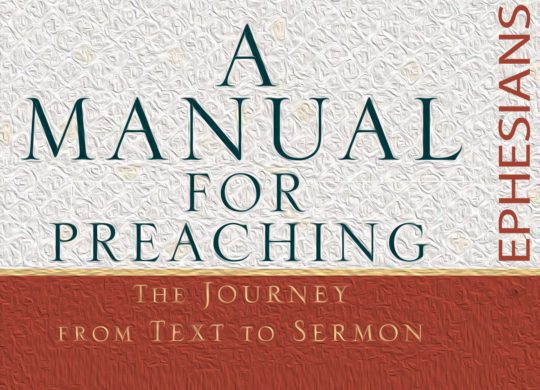Ephesians 6:1–9

The theme of submission in this pericope is the extension of the fifth participle—“submitting”—that qualifies “filling by the Spirit” (Eph 5:18). We see instructions to those in authority (parents, employers) and to those under authority (children, employees).
The sense of 6:1 is that to obey one’s parents is tantamount to obeying God. Obedience is part of spiritual formation and discipleship to God, a mark of a follower of Christ, and not simply a response to authority. The retention of “on the earth” in 6:3 from the Decalogue indicates that blessing for obedience occurs in this life.
The Greek word for “father” can include both parents. It is quite countercultural that Paul sanctions no absolute authority in the hands of parents. They are asked to treat their wards with utmost care and concern. Provocation of their children to anger is proscribed; instead, parents are to “bring up” their children in the “discipline and instruction of the Lord” (6:4). Parents, surrogates for God the Father—God is, after all, the ultimate Father (3:14–15; 4:6)—care for their children as God does for his.
Mutual submission—an integral manifestation of Spirit-filling—in the parent-child relationship reflects the divine responsibility of the former and the submission of the latter as unto God, resulting in blessing.
There is a consistent focus on serving in the next section: “eye-service” and “slaves” (6:6); “serving” (6:7); and “slave” (6:8)—all from the same Greek root, “to serve” (douleuō). But ultimately it was not their earthly masters being “served,” but Christ, the heavenly Master (6:9). The comparisons in 6:5–7, using “as,” show how slaves are to behave towards their masters in light of their acknowledgement of Christ as Lord: “as to Christ” (6:5); “not … as people-pleasers” (6:6a); “as slaves of Christ” (6:6b); and “as to the Lord” (6:7).
Since it is Christian masters who are subsequently addressed, the “fear” of slaves/employees (6:5) has the same force as that of the wife for her husband (5:33), a demeanor of deferential respect. “Sincerity of your heart” (6:5) qualifies the attitude of “fear and trembling”: it denotes purity of motive and singleness of purpose. And by expressing such an attitude they would get their reward “from the Lord” (6:6–8).
Masters are, in turn, exhorted to “do the same things” to their slaves, expecting similar rewards from an impartial judge (6:9). Paul treats motivation for future rewards as incentive for present behavior, first for slaves (6:8), and then for masters (6:9). There is an emphasis on “each one” that shows up early in 6:8 (literally: “knowing that each one, whatever good he does …”). That Christ, the Lord, is the true “Master” (6:6–9) is a reminder that earthly masters, themselves, are slaves, too, fellow-slaves with their own slaves of the same Master in heaven.
Paul’s exhortation must have been quite shocking in a culture where the abuse of slaves was not entirely uncommon. Paul’s advice to believing slave masters thus subtly undermines the whole system of slaveholding. Slave-owning believers are, in a sense, to submit to their slaves (5:21), serving their slaves in the same way they desire their slaves to serve them. The threat of violence is impossible in such an arrangement, and without the threat of violence, the abuses of slavery disappear, breaking down the whole system.
Mutual submission—an integral manifestation of Spirit-filling—in the employer-employee relationship reflects the responsibility of the former under the hand of God, and the submission of the latter as unto God, resulting in blessing.
Not necessarily shorter, but simply another version:
Children obey their parents and parents gently instruct their children, and slaves obey their masters with sincerity and masters treat their slaves likewise as they both serve God—all furthering unity and promising reward.











 Abe Kuruvilla is the Carl E. Bates Professor of Christian Preaching at The Southern Baptist Theological Seminary (Louisville, KY), and a dermatologist in private practice. His passion is to explore, explain, and exemplify preaching.
Abe Kuruvilla is the Carl E. Bates Professor of Christian Preaching at The Southern Baptist Theological Seminary (Louisville, KY), and a dermatologist in private practice. His passion is to explore, explain, and exemplify preaching.